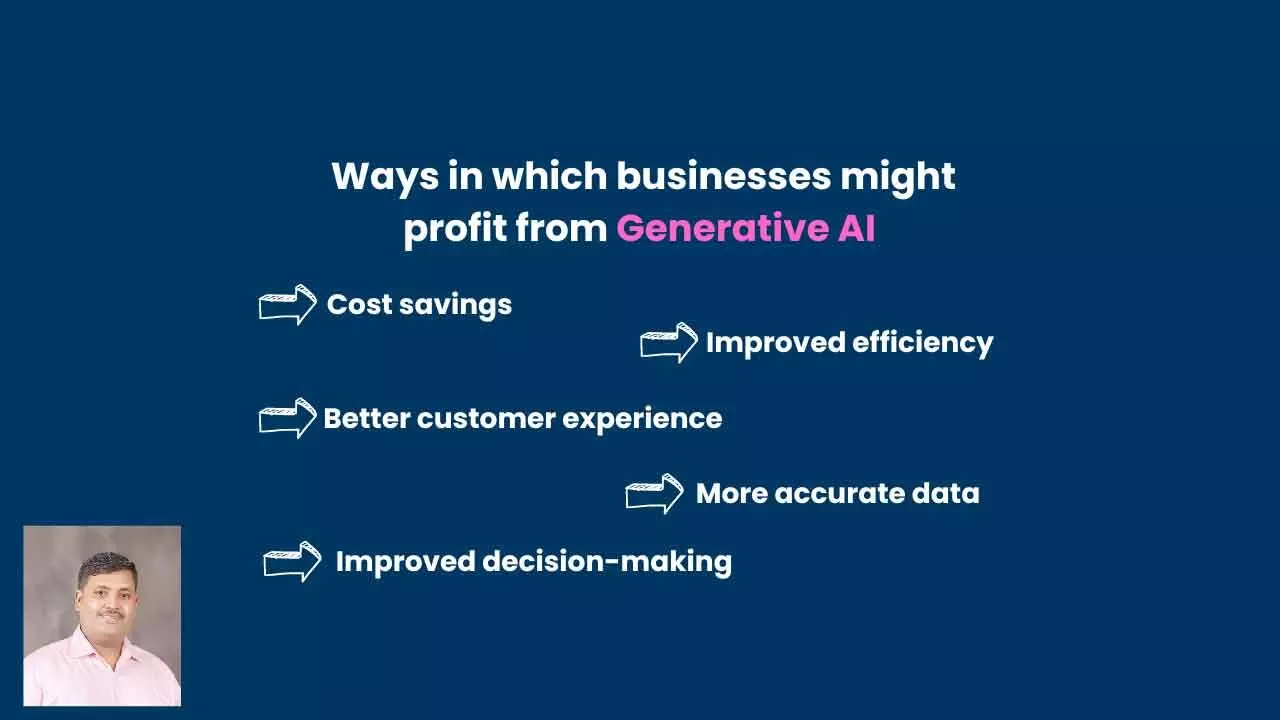Strategic Advantages Of Personalised Recommendations And Increase In Revenue Through Generative AI
In today’s competitive market, a customer-centric approach is no longer optional but paramount
Strategic Advantages Of Personalised Recommendations And Increase In Revenue Through Generative AI

Amazon serves as a powerful case study in the successful application of personalized recommendations and Generative AI. Its recommendation engine, leveraging advanced algorithms and machine learning, delivers impressive outcomes
In today’s fast-paced digital world, businesses are relentlessly pursuing enhanced customer satisfaction and operational efficiency through innovative strategies like personalized recommendations and generative AI (Gen AI).
A recent market research points out that personalized recommendations have become integral to modern business, significantly enriching customer experiences.
Companies like Amazon have mastered the art of using recommendation algorithms to curate individualized shopping experiences that drive customer loyalty and increase lifetime value. In today’s competitive market, a customer-centric approach is no longer optional but essential. According to McKinsey, companies excelling in personalization generate 40% more revenue than their peers. By analyzing customer behaviour, preferences and purchase history, businesses can tailor content, products, and services to meet individual needs effectively. This level of customization not only fosters enhanced customer satisfaction but also encourages repeat business and brand advocacy. Data-driven insights are crucial in delivering these personalized experiences.
Gartner emphasizes that leveraging advanced analytics and machine learning models to analyze vast datasets enables businesses to predict consumer preferences with high accuracy. These insights facilitate informed decision-making, optimized marketing strategies, and the creation of a seamless customer journey, which in turn elevates the overall consumer experience.
Generative AI stands out for its potential to revolutionize both operational efficiency and creative processes within businesses.
Unlike traditional AI models that follow predefined rules and datasets, Generative AI creates new, original content based on learned patterns, making it a versatile tool across domains. By automating routine tasks and efficiency, it reduces operational costs and boosts productivity. For instance, Generative AI can automate responses to customer service inquiries, reducing human intervention and speeding up resolution times.
McKinsey states that AI integration into supply chain management can reduce forecast errors by up to 50 per cent. Accurate demand forecasts and optimal inventory levels help businesses avoid costly overstocking or stock-out, ensuring smooth supply chain operations.
Generative AI also ushers in a fresh wave of creativity and innovation. It assists in developing new product designs, generating unique marketing content and even composing music or writing stories. Gartner points out that this capability is invaluable in industries where creativity is a driving force, such as advertising and entertainment.
Amazon serves as a powerful case study in the successful application of personalized recommendations and Generative AI. Its recommendation engine, leveraging advanced algorithms and machine learning, delivers impressive outcomes.
For instance, 20 per cent of recommended items are added to carts, yielding a 15 per cent increase in Customer Lifetime Value (CLV). Additionally, personalized recommendations contribute an additional $100 in revenue per user annually, translating to a 14-15 per cent increase per user. This also boosts the Average Order Value (AOV) by 20%, with a very significant Return on Investment (ROI) on AI investments.
Operationally, Amazon has reduced the search abandonment rate by 25 per cent and the cart abandonment rate by 10 per cent, all while improving customer satisfaction metrics. Customer Satisfaction Score (CSAT) increased by eight per cent and the Net Promoter Score (NPS) improved from 60 to 75.
Gartner's research echoes these advantages, noting a 20 per cent rise in customer satisfaction and a 15 per cent boost in engagement. Click-Through Rates (CTR) increase significantly by 30 per cent, contributing to up to 20 per cent of online revenue. Conversion rates improved by 2-5 per cent, with AOV rising by 10-15 per cent, and operational ROI ranges from 25-50 per cent within the first year. These metrics illustrate the broad advantages of personalized recommendation systems.
McKinsey's findings further reinforce the strategic benefits of personalized recommendations and Generative AI. CLV increases by 10-30 per cent, churn rates drop by 10-20 per cent and retention rates rise by 5-10 per cent.
Personalized suggestions account for 12-15 per cent of e-commerce sales, increasing the likelihood of purchase by 75 per cent. Cross-sell and up-sell revenues rise by 20 per cent, supply chain efficiency improves by 5-10 per cent, and marketing effectiveness increases by 20-30 per cent. Operational costs can be reduced by 10-15 per cent, with each AI dollar yielding up to $20 in revenue and savings.
Notwithstanding the immense benefits, integrating personalized recommendations and Generative AI do pose challenges. Businesses must invest in robust data infrastructure, prioritize data privacy and security, and address the ethical implications of AI-generated content. However, as AI technology continues to advance, becoming more sophisticated and accessible, the future looks promising. Early adopters of these innovations will likely gain a competitive edge, excelling in customer satisfaction and operational excellence.
Embracing this shift is crucial for businesses aiming to prosper in the digital age.
(The writer, an IIMA alumnus and strategic software architect, is employed with a leading IT MNC in Bengaluru)

